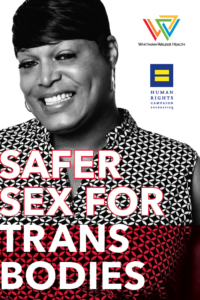I’ve been taking my time before responding to the conversation about sexual assault spurred by Kelly Shibari’s accusation of Reid Mihalko. The original coverage of Kelly’s account and Reid’s response can be seen here and a list of further analysis, accountability statements, community response, and more can be found here.
Let me start, as all writings about a sexual assault case should start: I believe Kelly. I stand with Kelly. I believe we all deserve to live in a world free of harassment, coercion, and sexual violence.
I also want to acknowledge a number of complexities, not of the facts regarding this incident, but of how justice and healing is carried out in our sex ed community.
First, that we all contain multitudes. Many of us exist as both perpetrators and survivors. I certainly do. We each have the capacity to harm, whether through selfishness, impulse, purposeful manipulation, or miscommunication. It is in the accountability process that we separate malice from misstep.
I am not the ultimate arbiter of Reid’s behavior. I believe well-intentioned people can make very painful and problematic mistakes. But I am deeply troubled by the pattern of behavior Reid has demonstrated. His interaction with Kelly was not an isolated incident but part of the larger way he interacts with the world. I want to believe that Reid’s pattern of action will change with exposure, accountability, and time. But I will be using my modest platform to encourage new community members to keep some distance from Reid while he works to change himself.
Second is the question of what true accountability looks like. For me (and many in the community, I imagine), there are competing impulses at play that I continue to rein in: the belief that Reid is (and indeed that all committed people are) capable of change. But also the desire to vet that change myself, to know the accountability partners, to see the behavior change myself and find it valid.
But I am not the ultimate arbiter of what constitutes a good apology, a timely and transparent accountability process. Kelly’s comfort, as the harmed party, is the most crucial element to success in this process, and if that is met, I believe we should be satisfied. I cannot speak to whether she is satisfied or not, but am watching and witnessing as this conversation continues to evolve.
Lastly, for those who see their own errors mirrored in Reid: endeavor to change and do better by your lovers, friends, and community. Reid’s behavior is extra troubling because of his position within the community as a widely respected expert. He used his power and relative acclaim as an educator to his advantage in situations of coercion.
But all of us have the power to do harm in the circles where we have local power.
If you have failed, acknowledge how and when you have failed. Strive to heal the hurt you have caused. Apologize with your whole heart. Do better.
At the beginning of every workshop I teach on consent, I take a moment to recognize the people I have hurt with my own consent violations. I will carry the shame and regret of my actions for my whole life, but I refuse to hide from my mistakes. I am acknowledging those mistakes and apologizing for them today as well. I am here to be held accountable by anyone whom I have harmed or am harming them in any way. I hope this conversation continues as we all strive to be better human beings.
Thank you,
Bianca



